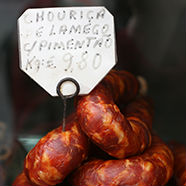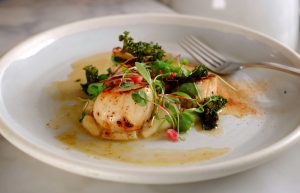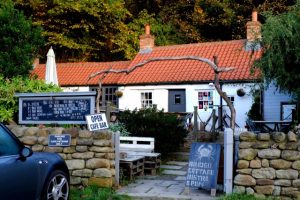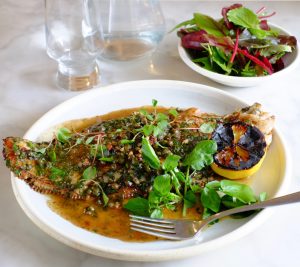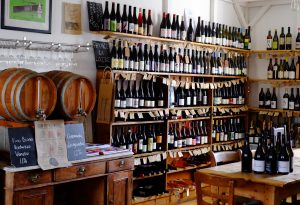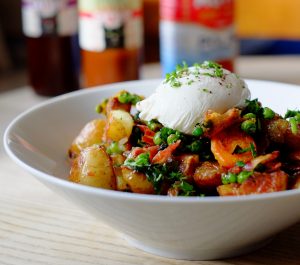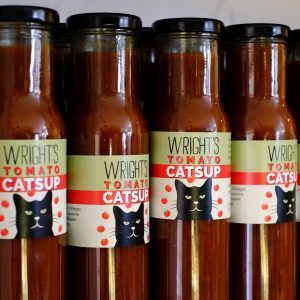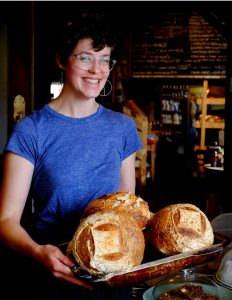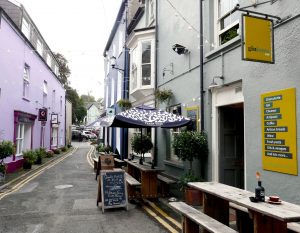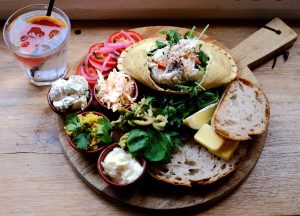I must have first visited the Black Swan at Olstead, on the southwestern fringes of the North York Moors, six or seven years ago. It was a comfy country pub in the middle of nowhere (nearest landmark Byland Abbey) serving elaborate variations on a theme of meat and two veg. But its special point of difference was that it was run by Mum and Dad Banks and their two sons James and Tommy. Tommy was working in the kitchen with its head chef Adam Jackson, while Mum and Dad served in the bar and kept food journos like me entertained. The village was silent as a morgue as I crept outside to the room next door they’d just converted into swanky B&B accommodation.
What a change when I returned to the Black Swan in October for Olive magazine. Tommy, the Banks’ youngest son, now 28, had not only won himself a Michelin star (four years earlier) and triumphed twice on the BBC’s Great British Menu (2016 and 2017) but a few weeks before I arrived, the inn had been named the best restaurant in the world by TripAdvisor (I know, what do they know about food? But hey, being named best in the world is a pretty cool accolade anyway). The car park was packed with BMWs, and my single room had now turned into nine, several inside the house that used to be Tommy’s grandmothers. Mum and Dad had been substituted by younger staff at the bar.
An eight-course tasting menu was the only option on offer, many of its ingredients happily sourced from the kitchen garden behind the inn and, in the case of foraged ingredients, the Yorkshire hedgerows. (The hogweed seed, honey and elderflower custard served with sheep’s yoghurt ice cream for dessert was spectacular). The jars lining the shelves in the smart first-floor restaurant were filled with fat jars of leaves and fruits that Tommy pickles and preserves to extend their season.
The highlight, though, and the dish that can never come off the menu, is the Crapaudine beetroot, an ancient French variety of beetroot that’s the size and shape of a very large turnip, and gets its name from its warty skin (crapaud being French for toad). It’s grown on the farm by Tommy’s dad, and once pulled is stored in straw which means it’s available all year round. Tommy slow-cooks slices of it in Dexter beef fat for around four hours – not in the oven as you might imagine, but on the top of the stove. The chunky beetroot slices are crowned with creamy clouds of cod’s roe and horseradish, interspersed with delicate linseed wafers. As I eat the dish, I can almost imagine the Crapaudine’s robust flesh is meat. No wonder the chefs dub it ‘meat root.’
Beetroot may be the simplest ingredient, but the Banks’ genius is that they’ve chosen a variety you won’t find anywhere else and as they grow it themselves on the farm they don’t depend on erratic suppliers. Working on this same principle, they also grow delicately flavoured Alpine strawberries which greet you at breakfast. “They taste best when minutes after being picked, ” Tommy’s dad tells me. “So we grow our own in the garden next to the pub.” So it’s no surprise, perhaps, that Tommy’s first book, just published, is called Roots. For roots is what the Banks family are all about – even if the place they’re serving them in is now up-scale restaurant rather than gourmet village boozer.
To read more about The Black Swan, and other eateries on the North York Moors, read my feature in the April issue of Olive Magazine.

The Black Swan at Oldstead © Clare Hargreaves
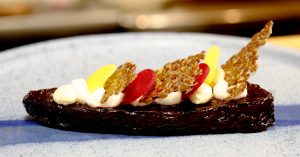
Tommy Banks’ sig dish of crapaudine beetroot slow-cooked in beef fat © Clare Hargreaves
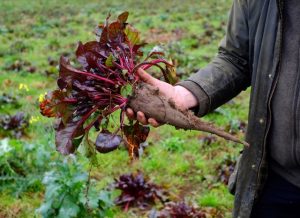
Crapaudine beetroot grown on the Banks’ farm in Oldstead © Clare Hargreaves




